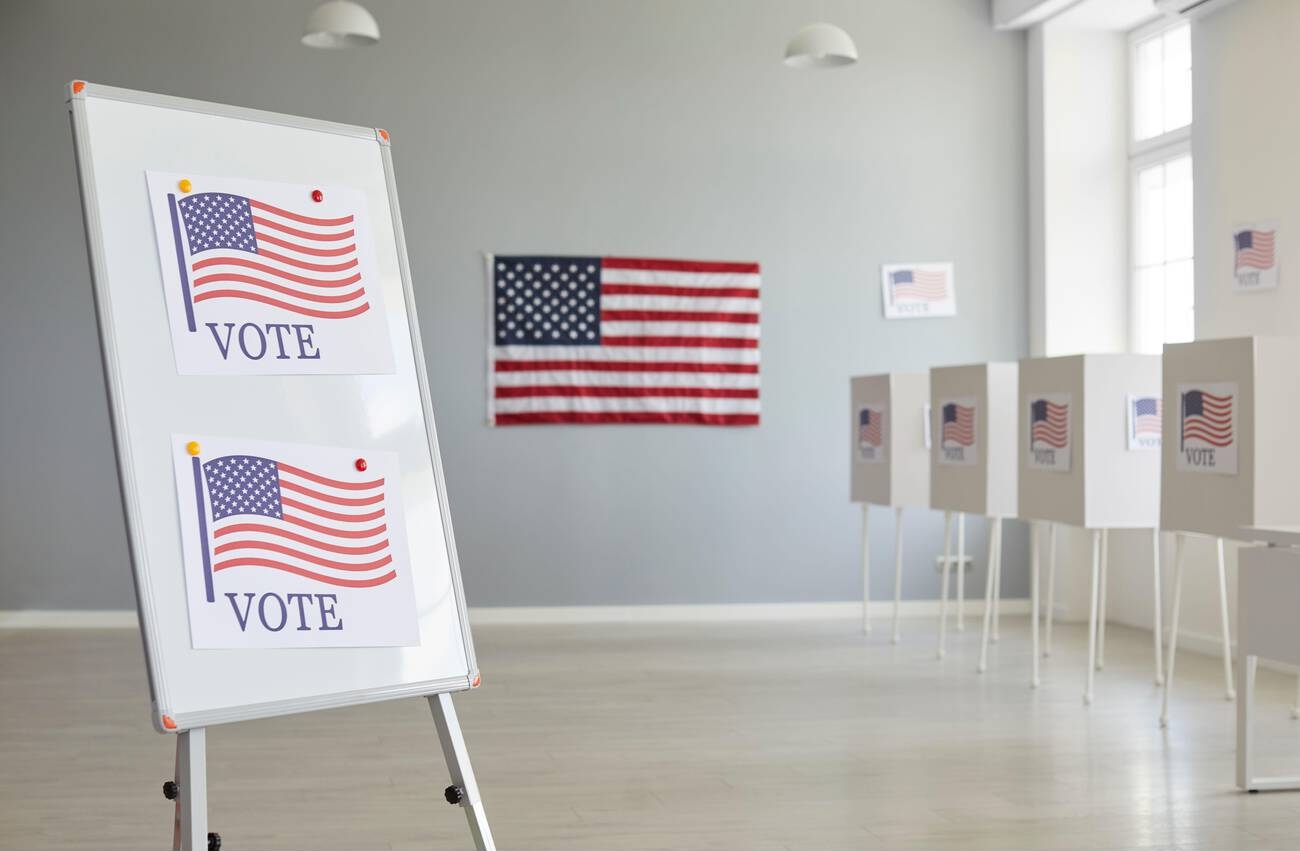You may be thinking, “Why should I care about the top reasons why people didn’t vote in previous U.S. elections?” Well, let me tell you, understanding these reasons is crucial for our democracy. By uncovering the barriers to voter engagement and participation, we can work towards creating a more inclusive and representative electoral system. So buckle up and get ready to dive into the key factors behind this lack of civic involvement. It’s time to shed light on why so many voices went unheard in the past elections.
Lack of Political Efficacy
You may feel that your individual vote doesn’t make a difference and that politicians are not responsive to your needs, leading to a lack of political efficacy. This voter disillusionment and perception of ineffectiveness can contribute to political disengagement and a trust deficit in the system. When you believe that your voice is not heard or valued, it’s easy to become disempowered and disinterested in participating in politics. The lack of political empowerment further reinforces this cycle, as you may feel like you have no control or influence over the decisions being made by elected officials. This overall sense of frustration and apathy towards the political process can lead to a decrease in voter turnout and an erosion of democratic participation.
Barriers to Voter Registration
Limited access to voter registration information and confusion surrounding registration procedures can create barriers to your ability to register to vote. These challenges include the complexity and confusion of the voter registration process, which can make it difficult for you to navigate the necessary steps. Additionally, insufficient access to accurate and up-to-date voter registration information can leave you feeling uninformed and unsure of how to proceed. Furthermore, inadequate outreach efforts contribute to the problem by not providing enough registration locations or targeting marginalized communities effectively. Lastly, restrictive requirements such as voter ID laws can also hinder your ability to register if you do not meet the specific criteria. It is important that these barriers are addressed in order to ensure that every eligible citizen has a fair opportunity to participate in our democratic process.
Disenfranchisement and Voter Suppression
Experiencing disenfranchisement and voter suppression can significantly impact your ability to participate in the electoral process. Systemic discrimination, voter ID laws, reduction in polling locations, felony disenfranchisement, and intimidation tactics all contribute to the suppression of certain individuals’ voices in elections. These barriers are designed to disproportionately affect marginalized communities and limit their access to voting. To illustrate the extent of these challenges, consider the following table:
| Barriers to Voting | Examples |
|---|---|
| Systemic Discrimination | Racial bias in voter registration processes |
| Voter ID Laws | Requiring specific forms of identification that some people may not possess |
| Reduction in Polling Locations | Closing polling places in predominantly minority neighborhoods |
| Felony Disenfranchisement | Denying voting rights to individuals with criminal records |
| Intimidation Tactics | Voter intimidation at polling stations |
These tactics undermine our democracy by silencing certain groups and perpetuating inequality. It is crucial that we address these issues and work towards a more inclusive electoral system where every voice is heard.
Lack of Civic Education
Civic education plays a crucial role in promoting voter engagement and fostering an understanding of the electoral process. Without proper civic education, there are educational gaps that contribute to a lack of awareness and limited understanding among citizens. Here are three key issues related to the lack of civic education:
- Educational gaps: There is an insufficient curriculum in schools when it comes to teaching civics, resulting in a civic knowledge deficit among students. Many young people graduate without a comprehensive understanding of their rights, responsibilities, and the importance of participating in the democratic process.
- Limited understanding: Without adequate civic education, individuals may not fully grasp the significance of their vote or understand how their participation can shape political outcomes. This limited understanding can lead to apathy towards politics and disengagement from the electoral process.
- Insufficient curriculum: The absence or inadequacy of civics education within school curricula contributes to a lack of awareness about the electoral process and voting rights. Citizens may not be equipped with the necessary knowledge and skills to navigate voter registration procedures or make informed decisions at the ballot box.
In addressing these issues, it is crucial to prioritize civic education initiatives that bridge educational gaps, raise awareness, enhance understanding, and ensure a comprehensive curriculum that equips citizens with essential knowledge for active participation in democracy.
Socioeconomic Factors
Socioeconomic factors, such as limited access to reliable transportation and conflicting work and family obligations, can hinder voter participation. These challenges contribute to voter turnout disparities and have a disproportionate impact on low-income communities. Economic inequality plays a significant role in creating accessibility challenges for marginalized individuals who may struggle to find the time or resources for political engagement. Voter suppression tactics further exacerbate these disparities by targeting vulnerable populations. By reducing polling locations, implementing restrictive voter ID laws, and engaging in intimidation tactics, some groups are systematically excluded from the democratic process. Addressing these socioeconomic barriers is crucial for promoting equal representation and ensuring that every citizen has an opportunity to exercise their right to vote.
Reasons for Not Voting
There are various factors that contribute to individuals choosing not to vote, including a lack of interest in politics and dislike for the candidates. Here are three key reasons for not voting:
- Voter apathy: Many non-voters feel disconnected from the political process and believe that their vote won’t make a difference. They may perceive politicians as unresponsive to public needs or view the political system as corrupt, leading to a sense of disillusionment.
- Disillusionment with candidates: Some individuals choose not to vote because they simply don’t like the candidates running for office. They believe that by abstaining from voting, they are refusing to legitimize a government structure and accepting an outcome that doesn’t align with their standards.
- Lack of interest: For some people, politics is just not their cup of tea. They may find it conflictual, difficult to understand, or less important compared to other aspects of their lives. Without a genuine interest in politics or seeing it as central to their identity, they are less likely to engage in the democratic process.
These factors, along with influences from personality traits and perceptions of voting as selfless collective responsibility, shape an individual’s decision on whether or not to cast their vote.
Lack of Engagement
If you’re feeling disconnected and apathetic towards politics, it can contribute to a lack of engagement in the democratic process. Voter disconnection, civic disengagement, public apathy, community alienation, and political disinterest are all factors that can lead to this lack of engagement. When you feel disconnected from the political system and believe that your vote doesn’t make a difference or that politicians aren’t responsive to public needs, it’s easy to become disinterested in participating in elections. Additionally, if you feel alienated from your community or have a general disinterest in politics, you may not see the relevance or importance of voting. However, it’s important to remember that engaging in the democratic process is essential for creating change and shaping the future of your community and country.
Apathy Towards Politics
Feeling apathetic towards politics can lead to disengagement in the democratic process and a lack of motivation to participate in elections. When you lack political interest, nonvoter disengagement becomes a reality. The indifference shown by the media further contributes to this disengagement, as they fail to provide comprehensive coverage of political issues and candidates. Additionally, a lack of political awareness perpetuates apathy towards politicians and their actions. When you feel disconnected from the political system and believe that your voice doesn’t matter, it’s easy to become apathetic towards politics. This sense of detachment can result in nonvoters feeling that most issues discussed in Washington don’t affect them personally. Without a genuine interest in politics and an understanding of its importance, many individuals remain uninvolved and disengaged from the democratic process.




